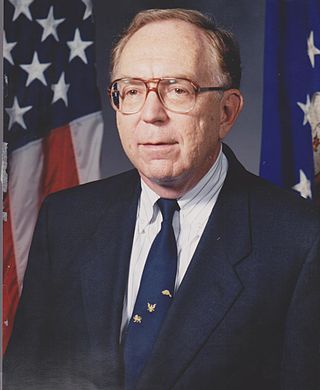
Edward Albert Feigenbaum is a computer scientist working in the field of artificial intelligence, and joint winner of the 1994 ACM Turing Award. He is often called the "father of expert systems."

The Department of Computer Science at the University of Manchester is the longest established department of Computer Science in the United Kingdom and one of the largest. It is located in the Kilburn Building on the Oxford Road and currently has over 800 students taking a wide range of undergraduate and postgraduate courses and 60 full-time academic staff.

Microelectronics and Computer Technology Corporation, originally the Microelectronics and Computer Consortium and widely seen by the acronym MCC, was the first, and at one time one of the largest, computer industry research and development consortia in the United States. MCC ceased operations in 2000 and was formally dissolved in 2004.

Austin Tate is Emeritus Professor of Knowledge-based systems in the School of Informatics at the University of Edinburgh. From 1985 to 2019 he was Director of AIAI in the School of Informatics at the University of Edinburgh.

Daniel Nicholas Quine is a computer scientist, currently VP Engineering at AltSchool.

Heung-Yeung "Harry" Shum is a Chinese computer scientist. He was a doctoral student of Raj Reddy. He was the Executive Vice President of Artificial Intelligence & Research at Microsoft. He is known for his research on computer vision and computer graphics, and for the development of the search engine Bing.

Chai Keong Toh is a Singaporean computer scientist, engineer, industry director, former VP/CTO and university professor. He is currently a Senior Fellow at the University of California Berkeley, USA. He was formerly Assistant Chief Executive of Infocomm Development Authority (IDA) Singapore. He has performed research on wireless ad hoc networks, mobile computing, Internet Protocols, and multimedia for over two decades. Toh's current research is focused on Internet-of-Things (IoT), architectures, platforms, and applications behind the development of smart cities.
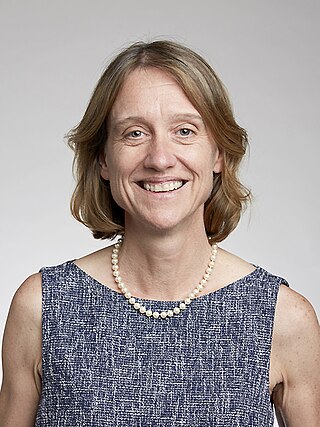
Julia Alison Noble is a British engineer. She has been Technikos Professor of Biomedical Engineering at the University of Oxford and a fellow of St Hilda's College since 2011, and Associate Head of the Mathematical, Physical and Life Sciences Division at the university. As of 2017, she is the chief technology officer of Intelligent Ultrasound Limited, an Oxford spin-off in medical imaging that she cofounded. She was director of the Oxford Institute of Biomedical Engineering (IBME) from 2012 to 2016.In 2023 she became the Foreign Secretary of The Royal Society.
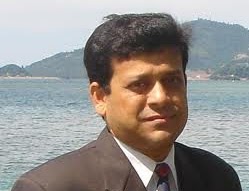
Ujjwal Maulik is an Indian computer scientist and a professor. He is the former chair of the Department of Computer Science and Engineering at Jadavpur University, Kolkata, West Bengal, India. He also held the position of the principal-in-charge and the head of the Department of Computer Science and Engineering at Kalyani Government Engineering College.
Vera Lucia Fernandes de Paiva da Silva is a Portuguese engineer and the chief technology officer (CTO) at General Electric (GE) grid solutions part of GE Renewable Energy business. She is one of the few women to hold a chief technology officer position at General Electric. She works on electricity grids technology and renewable energy integration.
Dimitra E. Simeonidou is a Professor of High Performance Networks at the University of Bristol. She works on the development of telecommunications networks, including 5G, and is a specialist in smart city infrastructures.
Julia A. Schnabel is Professor in Computational Imaging and AI in Medicine at Technische Universität München, Director of the Institute of Machine Learning in Biomedical Imaging at Helmholtz Zentrum München, and Chair of Computational Imaging at the School of Biomedical Engineering and Imaging Sciences at King's College London. Previously, she was Associate Professor in Engineering Science at University of Oxford where she became Full Professor of Engineering Science in 2014.
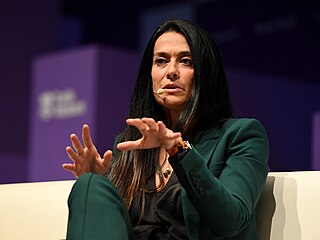
Grazia Vittadini, is an Italian-German aerospace executive. From May 2018 to 2021 she was Chief Technology Officer (CTO) of the aerospace and defence company Airbus. Since November 2021 Vittadini has served as the Chief Technology Officer (CTO) of the aircraft engine and power systems company Rolls-Royce Holdings.
Catherine Jane Noakes is a British mechanical engineer who is Professor of Environmental Engineering for Buildings at the University of Leeds. Noakes specialises in airborne infections and the transport of airborne pathogens. During the COVID-19 pandemic, Noakes served on the Government of the United Kingdom Scientific Advisory Group for Emergencies (SAGE).
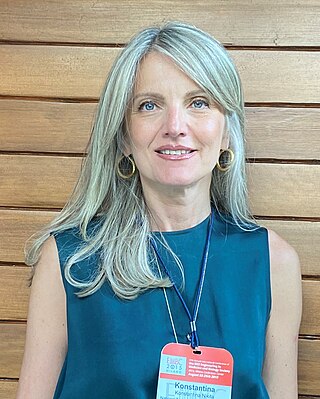
Konstantina "Nantia" Nikita is a Greek electrical and computer engineer and a professor at the School of Electrical and Computer Engineering at the National Technical University of Athens (NTUA), Greece. She is director of the Mobile Radiocommunications Lab and founder and director of the Biomedical Simulations and Imaging Lab, NTUA. Since 2015, she has been an Irene McCulloch Distinguished Adjunct Professor of Biomedical Engineering and Medicine at Keck School of Medicine and Viterbi School of Engineering, University of Southern California.

Carlotta Berry is an American academic in the field of engineering. She is professor of electrical and computer engineering at Rose-Hulman Institute of Technology. She is co-director of the Rose Building Undergraduate Diversity (ROSE-BUD) program. She is a co-founder of Black In Engineering and a co-founder of Black In Robotics.
Hatice Gunes is a Turkish computer scientist who is Professor of Affective Intelligence & Robotics at the University of Cambridge. Gunes leads the Affective Intelligence & Robotics Lab. Her research considers human robot interactions and the development of sophisticated technologies with emotional intelligence.
Susan Gourvenec is a British geoscientist who is Professor of Offshore Geotechnical Engineering and deputy director of the Southampton Marine and Maritime Institute at the University of Southampton. She was elected a Fellow of the Royal Academy of Engineering in 2022.
Dinesh Verma FREng is an Indian-born American computer scientist. He is an IBM Fellow working at IBM Thomas J Watson Research Center, Yorktown Heights, NY where he conducts research on technologies at the intersection of the Internet of Things, Artificial Intelligence and Distributed Systems. He concurrently serves as the Technical Committee Chair/Chief Technology Officer of Enterprise Neurosystems Group, an open-source consortium focused on distributed enterprise AI.

Bing Xue is a New Zealand computer scientist, and is a full professor at Victoria University of Wellington, specialising in machine learning, artificial intelligence and data visualisation.












